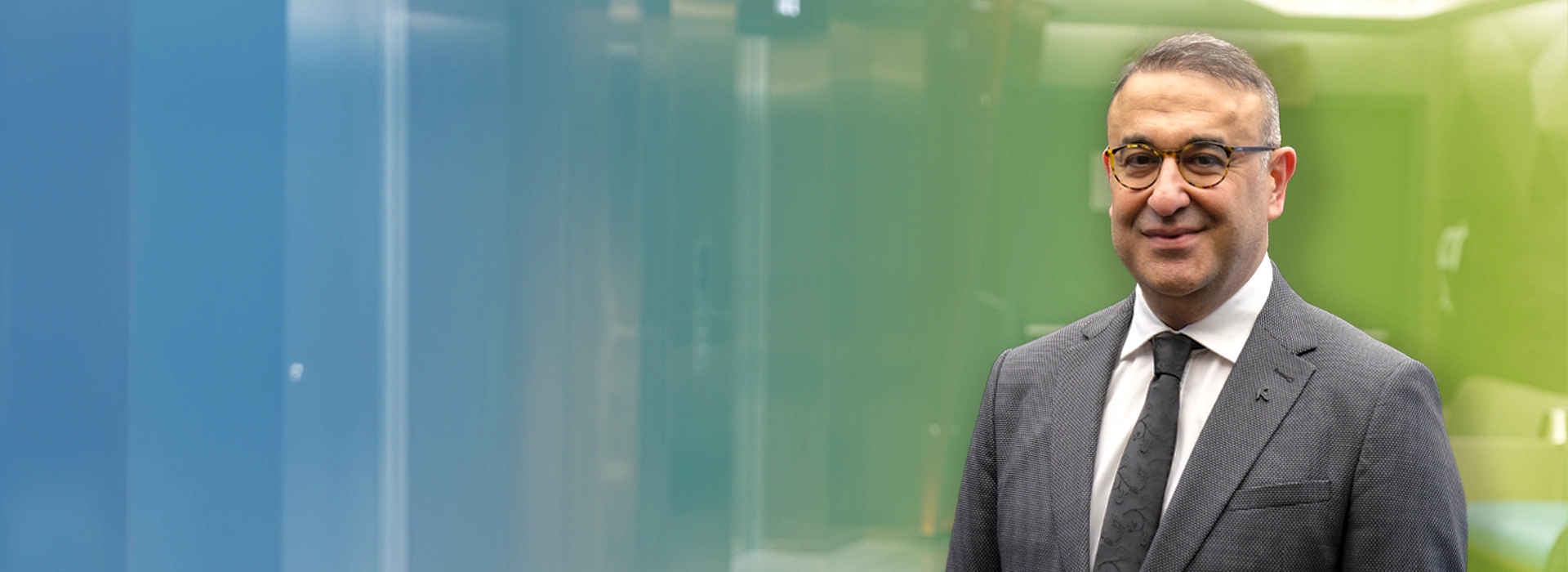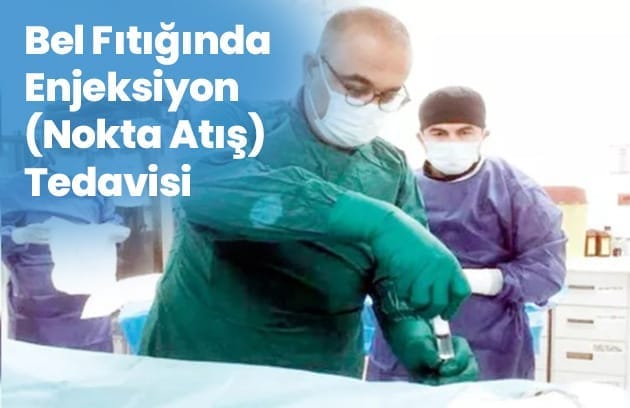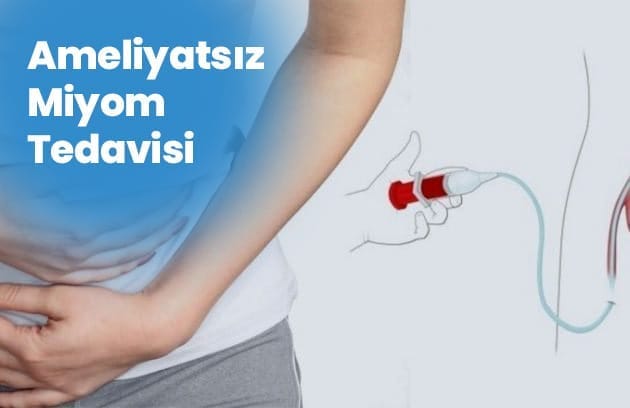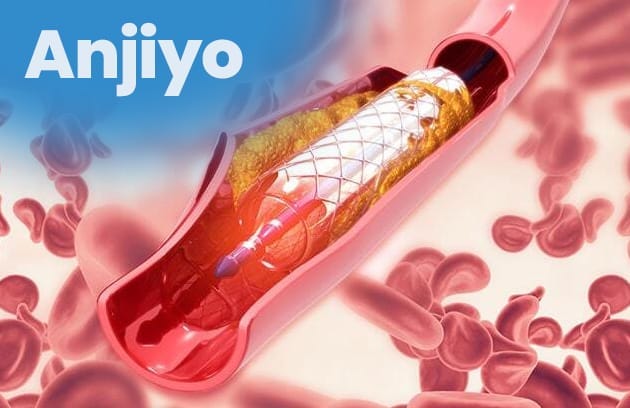Prof. Dr.
Özgür KILIÇKESMEZ

Non-Surgical Lumbar and Cervical Herniation Treatments
By selecting the method best suited to the patient—ozone, radiofrequency, or laser discectomy—a needle is advanced into the herniation and a size-reducing procedure (pharmaco-thermal regression) is performed. Within about 3 months, the herniation regresses and nerve compression decreases.

Non-Surgical Thyroid Treatment
Through percutaneous access (Radiofrequency, Microwave, Cryoablation), nodules are ablated, or—in very large goiters and in Basedow–Graves disease—embolization is performed, providing treatment without surgery in about 30 minutes. Nodules shrink, symptoms resolve, and patients do not need to use thyroid medication.

For head, neck, back, shoulder, knee and joint pain, the source of the pain is first identified; if the patient is not at the point of requiring surgery, long-term pain relief can be achieved with prolotherapy, PRP, stem cell therapy, RF or embolization.

Erectile Dysfunction Treatment
Most organic erectile dysfunction stems from vascular problems. In younger patients, venous leaks are often responsible and can be treated with embolization. Arterial causes appear more commonly at older ages; treatment targets reopening blocked arteries with balloon angioplasty or stenting.


Prof. Dr. Özgür KILIÇKESMEZ
Turkey’s Interventional Radiology and Neuroradiology Physician
Prof. Dr. Özgür Kılıçkesmez provides high-technology treatment options in Istanbul and across Turkey to patients from both within the country and abroad, with the goal of being among the best Interventional Radiology and Neuroradiology physicians.
Patients arriving in Istanbul from Europe, the Middle East and many other countries are treated using non-surgical and minimally invasive methods in many areas such as cerebral vessel occlusions, stroke treatment, brain aneurysms, tumor embolizations, liver ablations, varicose and vascular interventions.
Read MoreTREATMENTS
Non-Surgical Lumbar and Cervical Herniation Treatment
Most lumbar and cervical herniations can be treated with methods that do not require surgery…
Non-Surgical Erectile Dysfunction Treatment
In erectile dysfunction, there are many causes such as psychogenic and hormonal factors…
Angioembolization for Shoulder Pain
Shoulder pain may arise from various causes, and this pain…
Pinpoint Injection Treatment
In addition to lumbar and cervical herniations, for other joint disorders…
Non-Surgical Goiter Treatment
Goiter is the enlargement of the thyroid gland due to various reasons, and sometimes…
Solution to Back Pain
Individuals suffering from back pain often find their daily activities…
Arteriovenous Malformations (AVM)
Arteriovenous malformations are congenital vascular anomalies…
TIPS (Transjugular Intrahepatic Portosystemic Shunt)
TIPS, or Transjugular Intrahepatic Portosystemic Shunt, is a procedure…
A Lasting Solution for Knee Pain
Excess weight and increasing age lead to degenerative problems in the knees…
Non-Healing Diabetic Foot Wounds
Diabetic foot wounds are a serious problem among individuals with diabetes…
Opening of Dialysis Fistula Blockages
Fistula blockages are a significant issue for dialysis patients. These blockages…
Vascular Occlusion
Atherosclerosis occurs when fatty plaques build up in the arterial wall…
Brain Angiography
Brain angiography, or cerebral angiography, visualizes the brain’s vessels…
Brain Aneurysm
A brain aneurysm develops due to weaknesses in the walls of cerebral vessels…
Non-Surgical Cancer Treatment
In developed societies, cancer is among the leading causes of death….
New Technologies in Angiography
CT-capable systems that produce three-dimensional images and can map cancer…
Cryoablation
Cryoablation is a medical treatment method. Especially preferred in cancer treatment…
Chemoembolization
During chemoembolization, special agents are delivered into the vessels feeding the tumor…
Radioembolization
Radioembolization is an innovative therapy used in the fight against tumors such as liver cancer…
Prostate Embolization
Prostate artery embolization (PAE) is performed by the interventional radiologist into the prostatic arteries…
Videos
Frequently Asked Questions
Which diseases does an Interventional Radiologist treat?
An Interventional Radiologist treats many conditions without surgery, such as vascular occlusions, abdominal vascular diseases, aneurysms, varicose veins, tumor treatments, fibroids, prostate, hemorrhoids, as well as joint or herniated disc pain, using image-guided interventional procedures.
Who should see an Interventional Radiologist?
Patients with vascular occlusion, varicose veins, liver tumors, thyroid nodules, aneurysms, hemangiomas, lumbar or cervical herniated discs, complaints related to joint degeneration, or the need for biopsy are usually referred to interventional radiology specialists.
What is the difference between an Interventional Radiologist and a classical surgeon?
While surgeons perform open surgery, interventional radiologists treat through needle-sized openings under imaging guidance, shortening the recovery period. Anesthesia is not required, and patients can usually be discharged on the same day.
Which imaging techniques does an Interventional Radiologist use?
Ultrasound, computed tomography (CT), magnetic resonance imaging (MRI), and angiography devices are the most frequently used imaging techniques in interventional radiology.
How is referral to an Interventional Radiologist made?
Patients are generally referred to interventional radiologists by orthopedics, neurosurgery, oncology, urology, or general surgery specialists after appropriate examinations.
In which cases does an Interventional Radiologist perform emergency interventions?
In life-threatening situations such as acute vascular occlusion, internal bleeding, cerebral aneurysm rupture, pulmonary embolism, or coughing up blood, interventional radiologists perform rapid interventions.
In which cancer treatments is an Interventional Radiologist involved?
Liver tumors, kidney tumors, lung nodules, bone metastases, and osteoid osteomas can be treated with interventional radiology techniques such as ablation or embolization.
Does an Interventional Radiologist offer the advantage of non-surgical treatment?
Yes, interventional radiologists treat diseases using needles or catheters without surgery, providing the advantages of less pain, shorter hospital stay, and faster recovery.
How long is the training of an Interventional Radiologist?
After medical school, 5 years of radiology residency followed by 2 years of training in interventional radiology are required. This allows physicians to specialize in performing treatments under advanced imaging guidance.
Which diseases does a Neurointerventional Radiologist treat?
These specialists treat brain aneurysms, arteriovenous malformations, vascular occlusions, strokes, treatment-resistant headaches, increased or decreased intracranial pressure, and spinal vascular diseases using interventional methods.
Which procedures does a Neurointerventional Radiologist perform?
Common procedures include brain aneurysm coiling, stent placement, carotid stenting, recanalization of vascular occlusions, tumor embolization, and spinal biopsy.
Which imaging methods does a Neurointerventional Radiologist use?
Magnetic resonance angiography (MRA), computed tomography angiography (CTA), and digital subtraction angiography (DSA) are the main imaging methods used in diagnosis and treatment.
Does a Neurointerventional Radiologist treat children as well?
Yes, interventional neuroradiological procedures can be performed in children for congenital brain vascular malformations (such as vein of Galen malformation), tumors, or spinal disorders.
What is the difference between a Neurointerventional Radiologist and a Neurosurgeon?
While neurosurgeons intervene with open surgery, neurointerventional radiologists perform treatments from inside the vessels under imaging guidance. This method is less invasive and shortens the recovery period.

OUR WORKING HOURS
Check the schedule
| Monday | 09:00 – 19:00 |
| Tuesday | 09:00 – 19:00 |
| Wednesday | 09:00 – 19:00 |
| Thursday | 09:00 – 19:00 |
| Friday | 09:00 – 19:00 |
| Saturday | 09:00 – 15:00 |
| Sunday | Closed |
























